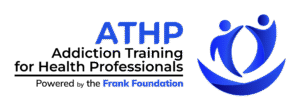In an increasingly digital world, the intersection of technology and healthcare has opened up new frontiers in addiction treatment and education. The Addiction Training for Health Professionals (ATHP) team at NextGenU.org was pleased to contribute to a chapter in the recently published fourth edition of Lifestyle Medicine. ATHP’s CEO, Miriam Chickering, was honored to contribute along with experts Mitika Kanabar, Monthe Kofos, Leah A. Kofos, and Roshan Bhad, who together explored the transformative potential of digital solutions in addiction treatment and healthcare education.
The Digital Revolution in Healthcare

The rapid growth of digital health solutions has been nothing short of remarkable. With an estimated 85% of U.S. adults owning a smartphone in 2021, the potential for digital interventions in healthcare has never been greater. This digital shift has been further accelerated by the COVID-19 pandemic, which has pushed more healthcare transactions online and highlighted the need for accessible, remote healthcare solutions.
Addressing the Addiction Crisis
The urgency of improving addiction treatment access and efficacy cannot be overstated. With approximately 3 million annual deaths globally attributed to substance use and only one in five patients with substance use disorders seeking help in the U.S., there is a critical need for innovative approaches to treatment and education.
Digital solutions offer a promising avenue to address this crisis:
1. Telemedicine: The relaxation of regulations during the COVID-19 pandemic has allowed for increased access to medication-assisted treatment for opioid use disorder via telemedicine. Studies have shown that this approach can improve treatment retention and reduce the risk of overdose.
2. Mobile Applications: A wide range of apps are now available for various aspects of addiction treatment, including:
- Screening and diagnosis
- Treatment and medication management
- Relapse prevention
- Mutual support and self-help
3. Prescription Digital Therapeutics (PDTs): FDA-approved apps like reSET and reSET-O combine cognitive behavioral therapy with contingency management, offering new avenues for treatment delivery.
4. Health Education and Prevention: Digital platforms are being used to deliver targeted health information and increase risk perception, particularly among adolescents.

Challenges and Opportunities
While digital solutions offer immense potential, they also present several challenges, including ensuring equitable access to digital health technologies, maintaining the privacy and security of patient data, and evaluating the effectiveness of digital interventions. ATHP is dedicated to tackling these challenges and leveraging the power of digital technologies to enhance addiction treatment and healthcare education globally.
The Role of ATHP
As a leader in free education, NextGenU.org and its Addiction Treatment and Health Promotion (ATHP) initiative play a crucial role in the digital revolution in healthcare. ATHP is integrating digital health literacy into its curriculum to ensure future healthcare professionals are well-prepared to use digital tools effectively. By collaborating with experts, ATHP also fosters innovation by developing and evaluating new digital interventions for addiction treatment. Its free, online educational model aligns to expand access to high-quality addiction treatment education for healthcare providers globally. Additionally, ATHP is committed to addressing the stigma associated with addiction through education and awareness, helping to overcome one of the significant barriers to treatment.

Looking Ahead
The digital transformation of addiction treatment is still in its early stages, but the potential for positive impact is immense. As we continue to navigate this new landscape, NextGenU.org and ATHP remain committed to providing free, quality education to empower healthcare professionals worldwide.
By staying at the forefront of technological advancements and integrating them into our educational offerings, we are not just preparing students for the future of healthcare—we are actively shaping that future.
Join us in this exciting journey as we harness the power of digital technology to revolutionize addiction treatment and healthcare education. Together, we can build a healthier, more connected world.
